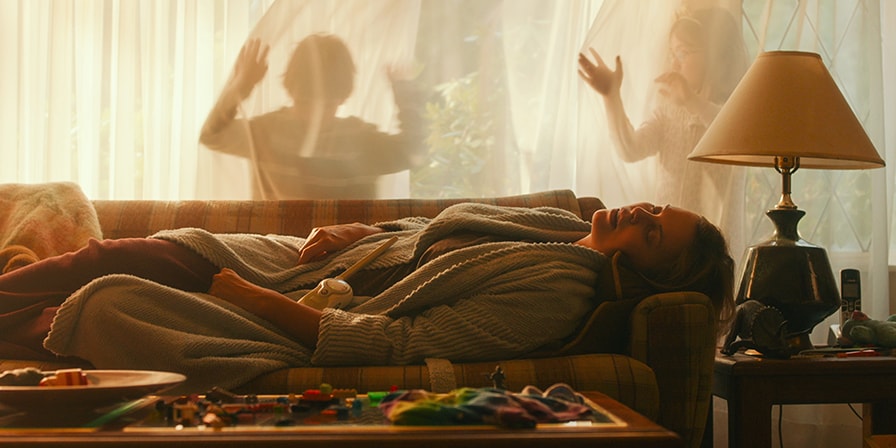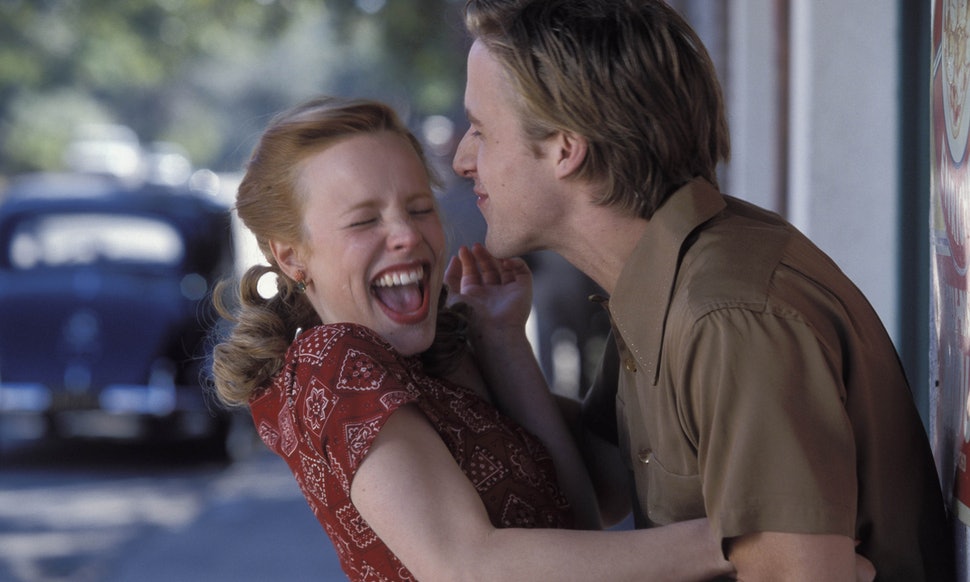Our Mothers, Ourselves: The Outsourcing of Self-Care and Gender-Bending of Genre in Tully
By Rebecca Alter | 11.03.2019
Tully. Dir. Jason Reitman. 2018. Film.
Out of all the petty fights I’ve had with my mom over the years, a recent one sticks out: it is Christmastime 2016 and we are standing in the rooftop parking lot at the Canada Square Cineplex in midtown Toronto. I am sobbing after a screening of 20th Century Women. What started out as a teary reaction to the movie has somehow escalated into a meltdown in the car, prompted by the disparity between my reaction to the movie and my mom’s; impossibly, she is un-shooketh. For whatever murky combination of reasons, this sets me off: I wail over the gulf in our feeling, sputtering something about how alienated it makes me feel to sit beside her unmoved by something that has affected me so strongly, something that I had wanted to share with her. This shouldn’t have been anything new to me; my mother doesn’t cry at movies. Still, I foist them on her, even if we appreciate them in deeply different modes: I blink back tears watching the end of Waitress while she plays Candy Crush on her phone, I force her — the night before I leave for freshman year in 2012 — to watch Gilmore Girls season 4 with me in bed while she rolls her eyes and falls asleep after one episode, I take her to Lady Bird and fall completely the fuck apart while she leaves the theatre dry-eyed.
Cue the 2018 release of Tully, which as far as I could tell from the charming, funny trailers, was a Diablo Cody movie in all of the ways we have come to expect: cute soundtrack, quirky characters, snappy dialogue, well-written women played by actresses who go underrated in real life but have achieved goddess-status in certain subsects of Twitter (let us never, ever forget Jennifer Garner in Juno). Tully delivered on these promises, and subverted them entirely. After seeing it the first time, I knew this would be another film I’d lovingly force on my mom so I took her on Mother’s Day to play out the inevitable rift, and because Tully is a movie that demands two viewings as much as any.
Young Adult (2011), Cody’s last collaboration with director Jason Reitman, centers on a difficult, brilliant performance by Charlize Theron as Mavis Gary, a Y.A. ghostwriter who haunts her small hometown on a quarter-life-crisis visit. The film ends with Gary finishing the Sweet Valley High-lite series, letting go of past hang-ups and driving out of town. “When We Grow Up” from Marlo Thomas’ “Free to Be You and Me” plays as the blackout hits. The message is clear: “We don’t have to change at all.”
When we encounter Theron again as Marlo in Cody and Reitman’s Tully, she’s no ghostwriter but still a little ghostly, pregnant within a week of her due date and shuffling through the mortal coil of raising two school-aged children. Marlo is exhausted and largely without support from her husband, played by Ron Livingston, whose star image will forever take the shape of a massive red flag on account of his breaking up with Carrie Bradshaw via Post-It in Sex and the City. He comes home from work late, offhandedly chides her for letting the kids have both screen time and microwave pizza, and settles into bed with XBOX live, headset on and totally closed off to the rest of the house. The other man in the film is Theron’s yuppie-technocrat brother Craig, played by Mark Duplass. Craig lives across a wide threshold of class, his ultra modern mansion and matte black G-Wagon contrasted with Marlo’s low-ceilinged, wood-panelled split-level. Craig takes Marlo into his basement tiki bar after a family dinner to tell her he’s gifted her a night nanny, someone to come alleviate the exhaustion of the first few sleepless weeks of newborn life, hinting strongly at her history with postpartum depression while never explicitly naming it. Marlo refuses at first, dismissing the service as the sort of thing “rich people” do: a critique that sounds completely reasonable coming from someone sitting in an in-home tiki bar. He gives her the nanny’s phone number, just in case.
Reproductive psychiatrist Alexandra Sacks uses the term “matrescence” to codify “the hormonal, bodily, and emotional changes” that mothers go through as an undeniable transformation of the self on par with puberty. These changes go virtually unrecognized in the broader culture, leaving many women feeling lost when comparing themselves to our impossible, false paradigms of a mythical motherhood completely foreign to their bodily and emotional experiences. While first-time motherhood breaches the threshold, matrescence is built upon with each new pregnancy, through what head of Columbia University’s maternal psychology lab Aurelie Athan calls a “layer-cake effect” (Zimmerman 2018). Pregnancy and childbirth are widely understood as physically and hormonally transformative processes, but Athan argues that the experiential and emotional changes that accompany early motherhood should also be integrated into our understanding of these more medical effects. Thus, as with puberty, the mother explores a new relation to the self, and to her own identity, as her body and its cycles change with pregnancy and infant caregiving, and re-open these explorations once more with each new child. Hence a scene where Marlo, a groggy alien not only in her own home but in her own skin, sits slumped at the kitchen table, vein-ravaged belly out. Her daughter comments cutely, astutely: “Mommy, what’s wrong with your body?” That night, Marlo calls the night nanny.
Tully. Dir. Jason Reitman. 2018. Film.
Tully arrives a little after 10 the next night, young and glowing, played by Mackenzie Davis as a Manic Pixie Mary Poppins in that uniquely uncanny “San Junipero” way of hers, warm but edging on transhuman. She takes a wide-eyed interest in both Marlo and the baby. It’s not until Tully arrives that we even learn the newborn’s name: Mia, after Marlo’s mother. The name feels apiece with an ongoing theme introduced by Tully as she bonds with mother and baby: the self is not as clearly defined or autonomous a unit as we think. Tully explains how in the early infant weeks, taking care of the mother serves to take care of the baby and vice versa, because they still share cells, and their bodies are still growing and changing after the shock of the birth. Coming from Tully it sounds a little woo-woo, and Marlo cocks a brow to show it, but the philosophy has a basis in maternal and infant psychology going back to Donald Winnicott, who suggested that a collapsed sense of self and consolidated, amorphous ego between the mother and newborn. The effect of Tully’s approach to care is immediately apparent: we see Marlo acting with so much more love and engagement towards the baby, and we see someone taking care of Marlo, keeping her company in the midnight hours, giving her a listening ear. As Tully points out, every cell in the human body regenerates except for those of the eardrum. She presents this fundamental riddle over drinks: does this make us different people than the ones we were before, made up of long-shed cells? Marlo’s husband and brother notice the change, too: it’s like they have the old Marlo back, they say, and all thanks to the work of a night nurse who slips away in the early hours, unseen by the rest of the family.
Here’s where it gets tough to continue talking about this movie without revealing Tully’s major twist. Tully operates in its first three quarters like any Reitman/Cody joint, a quirky slice-of-life poignant comedy full of realistically un-aspirational interior digs, not a “mind fuck” psychological puzzle. There are hints towards the fantastic throughout, namely in a mermaid motif that appears in Marlo’s dreams and on her television, as her exhaustion and frequent late-night-infant-interruptions lead to a blurring of her dream-space and reality.
The twist unfolds after Marlo drives Tully and herself off a bridge after nodding off at the wheel following an ill-advised jailbreak from the confines of the house to the Bushwick bars of Marlo’s past: Tully isn’t real; she is a manifestation, an apparition, an imaginary friend. Marlo never called the night nanny in the first place, and Tully had been a manifestation of Marlo’s over-exhausted mind needing companionship and self-care, a vision of herself at 26, a self extracted from the self. As Marlo lies in the hospital after the accident, her husband responds to a psychiatrist’s questions: no, he never actually saw the night nanny; yes, Marlo had been keeping long hours taking care of the family mostly without his help; and her maiden name, if he could just jot it down on the medical forms...is Tully. The viewer begins to reflect on small, dropped hints, like when Tully is frustrated with a roommate situation she’s too enmeshed in to leave, or when she tells Marlo that “this isn’t going to work” if she questions her methods, encouraging a sustained mode of willed removal from herself-as-other, and as caregiver. The plot twist is the skeleton key to the film, recontextualizing and justifying certain elements that we have come to accept under the male-gaze of romantic comedies and psychological thrillers, exposing them as shallow and in some cases, tragic.
Tully. Dir. Jason Reitman. 2018. Film.
For example, the twist recontextualizes a scene midway through the film where Tully dresses up in Marlo’s old “sexy waitress” costume and joins her and her husband in bed as a way of reigniting their stagnant love life. It’s an atonally salacious moment in an otherwise gentle, slow-paced movie. It is a moment that prompted my mom to turn to me and mutter “awkwarrrrrd” in a stage-hiss. It also notably subverts a common genre trope of the split-personality “mind fuck” micro genre. In films from Black Swan to Mulholland Drive, male filmmakers take the dual-personality trope as an invitation to imagine lasciviously sensual scenes of female sexuality directed at a male gaze: one woman’s masturbatory desire acted out by two actresses, less as expressions of a character’s psychology and more as a way for film bros to justify their lusty softcore fantasies as high brow and heady. Here, the moment feels awkward and “off” as it plays out, and is retroactively infused with sadness. Rather than the scene being about pleasing Marlo’s husband, it illustrates a woman unable to see herself as desirable, who has internalized society’s writing-off of the post-childbirth body as desexualized and solely a functional household appliance. The film echoes this scene when Marlo goes out in Bushwick with Tully, and wishes that the bartenders would check her out the way they do her twenty-something friend. Tully answers: “I think he was checking you out,” in a line of viable female interaction and also a moment of foreshadowing. The twist also recontextualizes the writing and performance behind the character of Tully herself. Her somewhat thin characterization — made up of pithy little facts and whimsical wardrobe choices, her lack of inner life outside of reinvigorating the protagonist — finds justification in the revelation that she is a figment conjured by Marlo. The twist thus acts as a sort of indictment of how young women are often written in the indie comedy genre: hollow and quirky projections of male screenwriter’s desires, not loaded down with the ugly heaviness of interiority and experience, like Marlo.
After seeing that I had tweeted about Tully the first time, a male film buff friend messaged me, wondering what my take was and taking the opportunity to express his reservations. He liked the film, he said, until the twist, which he found to be unnecessary. He “wished the movie just left it ambiguous” and “dreamlike,” rather than base Tully’s apparition in a case of a new mother’s exhaustion and isolation. He found it awkward and jarring. He said the film “didn’t need it.” I argued that the twist made the movie not just smart but wrenching. However, a quick Twitter scroll showed that my friend was not alone in his take: across the Internet, filmgoers expressed discomfort with what I’ve identified as the film’s genre-bending, or the idea that elements of psychological thriller could find narrative justification and expression in a plot about the caregiving roles of women in a quotidian, domestic setting absent of horror or action tropes. Still, I believe that Tully, in telling the story of a woman who has to outsource her selfhood in order to achieve the bare minimum of caregiving expected of her by her family and community, offers a successful model for how the boundaries of genre expectations can be blurred and borrowed to illustrate emotional states in ways we may not have an entirely coherent film language for, yet.
Case in point: I braced myself when the lights came back on in the cinema on Mother’s Day, ready to defend my love of the movie (and my tears) against my mom, whose reaction would be inevitably insufficient. Her first comment was: “that Tully girl was weird, but she was supposed to be weird, right?” Fair enough. But by the time we made it to the parking lot, the conversation shifted: my mom told me about her own exhaustion when I was a baby, her frustration with the lack of support from certain family members, her gratitude for the support of others, and mine and her own experience with a night nanny, which I had never known about. I believe that this is the power of allowing more fantastical tropes and styles of visual storytelling to play out not in the removed lands of the male auteur’s psychosexual fantasy or high-philosophical dystopia, but in the cinematically-marginalized women’s space of the home: they can express long-buried or underrepresented feelings and experiences as universal. Suddenly, the self expands, as isolating personal experience can be recognized as something shared. By breaking convention, Tully broke open a gate for intergenerational communication.
Also Read
Click here for works cited in "Our Mothers, Ourselves: The Outsourcing of Self-Care and Gender-Bending of Genre in Tully"





